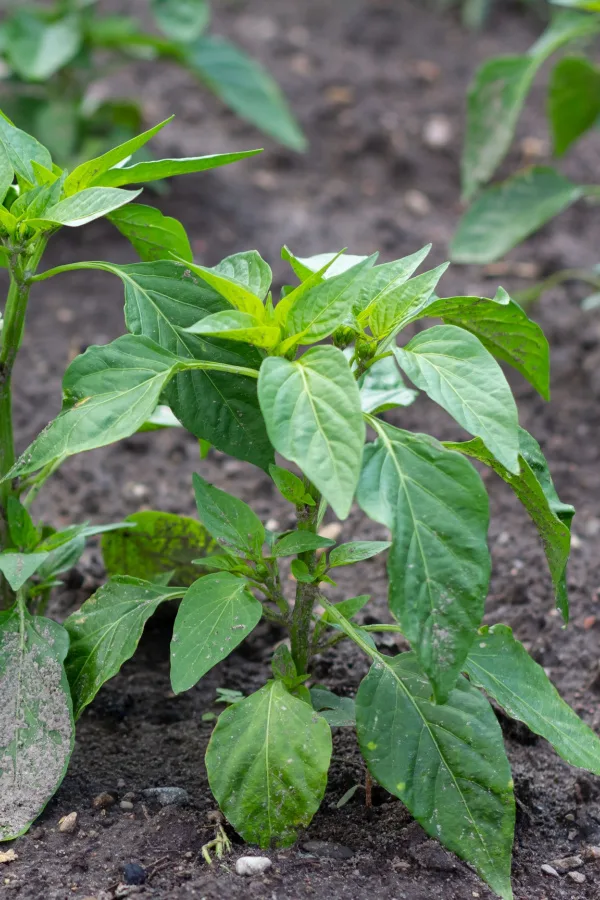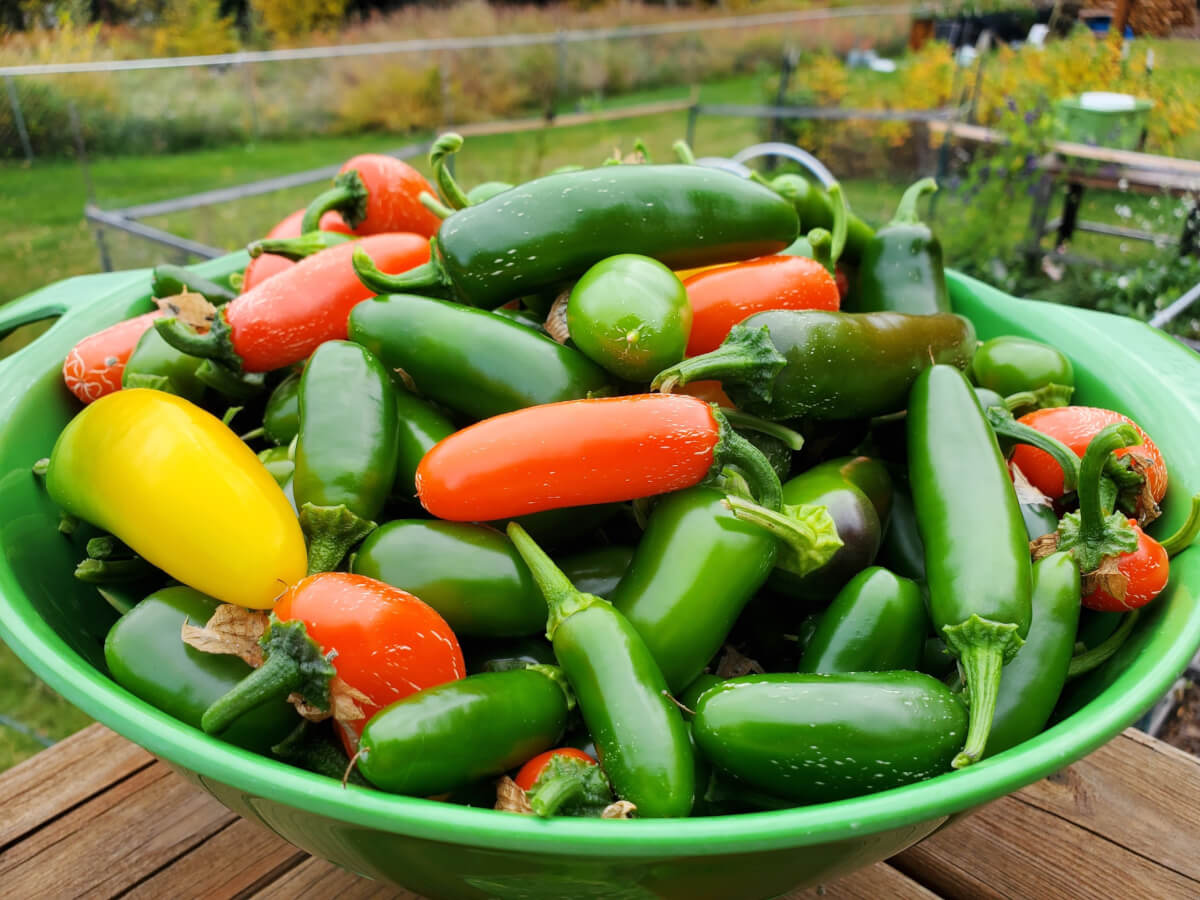Organic Vs. Synthetic Fertilizers: Which Is Best for Supporting Healthy And Balanced Pepper Plants?
In the realm of nurturing healthy pepper plants, the option between organic and synthetic fertilizers stands as a critical decision with significant ramifications. While both choices goal to give essential nutrients to support plant development, the nuances of their impact on the soil, plant wellness, and the environment stimulate a dispute that mirrors throughout the horticulture area. Understanding the unique benefits and possible risks of each fertilizer type is crucial for pepper growers seeking to maximize their returns while preserving an eco-conscious and lasting approach.
Advantages of Organic Plant Foods
Organic plant foods provide a sustainable and environmentally-friendly method to nourishing pepper plants, offering important nutrients without the usage of synthetic chemicals. These natural fertilizers are acquired from natural resources such as compost, manure, bone meal, and algae, promoting soil health and wellness and biodiversity. Unlike artificial plant foods, natural options launch nutrients slowly, guaranteeing a steady and well balanced supply for pepper plants to grow.
One considerable advantage of natural plant foods is their ability to boost dirt structure and water retention. By boosting soil wellness, natural plant foods promote valuable microbial activity, which assists in nutrient uptake by pepper plants. Additionally, organic plant foods reduce the danger of chemical run-off, safeguarding water sources from air pollution and safeguarding the setting.
Furthermore, natural fertilizers add to long-lasting dirt fertility by promoting the development of useful soil microorganisms. These microorganisms aid damage down natural issue, releasing nutrients in a form that is conveniently obtainable to pepper plants. best fertilizers for peppers. By promoting a healthy dirt ecosystem, organic fertilizers support lasting pepper growing techniques that profit both plants and the setting
Drawbacks of Synthetic Fertilizers
Synthetic fertilizers, in comparison to their organic counterparts, position various disadvantages when made use of to nurture pepper plants, affecting both plant health and ecological sustainability. One significant disadvantage of synthetic plant foods is their tendency to leach nutrients from the soil swiftly.
Moreover, the overuse of synthetic fertilizers can contribute to water pollution. Excess fertilizers not soaked up by plants can clean away right into water bodies, resulting in eutrophication, where algae blooms diminish oxygen levels in the water, damaging marine life. Moreover, synthetic fertilizers are typically stemmed from non-renewable resources, such as nonrenewable fuel sources, adding to carbon discharges and environmental deterioration during their production.
Nutrient Absorption Contrast
Reliable nutrient absorption plays a vital function in the total health and wellness and development of pepper plants. When comparing artificial and natural plant foods in regards to nutrient absorption, organic plant foods have the benefit of giving a much more well balanced and slow-release resource of nutrients (best fertilizers for peppers). Organic plant foods have a selection of macro and micronutrients that are not just beneficial for the plants yet resource likewise advertise healthy and balanced dirt microbial activity, which assists in nutrient uptake. On the other hand, synthetic plant foods often give a fast launch of nutrients, which can result in seeping and overflow, leading to reduced nutrient absorption prices by the plants.
In addition, natural plant foods improve dirt structure and he said water retention capacity, allowing pepper plants to gain access to nutrients extra efficiently. This better soil high quality helps with origin development, allowing much better nutrient absorption. Synthetic plant foods, although originally enhancing plant development because of their high nutrient focus, may impede long-term nutrient absorption by degrading dirt health and wellness in time.
Ecological Effect Factors To Consider

On the other hand, synthetic fertilizers, although usually more immediately available and concentrated to plants, can have damaging results on the environment if not used correctly (best fertilizers for peppers). Their production requires high energy inputs, resulting in greenhouse gas exhausts and contributing to environment modification. The drainage of excess synthetic fertilizers can infect water resources, leading to eutrophication and damaging water environments.
Best Plant Food Practices for Peppers
To accomplish this, it is necessary to adhere to finest plant food practices customized to the particular needs of pepper plants. One vital practice is to execute a soil examination prior to using any kind of fertilizers.
An additional vital method is to feed pepper plants at the appropriate time. Commonly, peppers gain from receiving fertilizer at planting and after that once again when they start to flower. Over-fertilizing can lead to vitamins and mineral inequalities and harm the plants, so it is important to adhere to suggested application prices.
In addition, choosing a well balanced plant food with an NPK ratio that anonymous fits pepper plants' demands is basic. Inevitably, incorporating organic and artificial fertilizers deliberately can assist support healthy pepper plants while decreasing environmental influence.
Conclusion

Organic fertilizers provide a lasting and environmentally-friendly approach to nourishing pepper plants, providing crucial nutrients without the use of artificial chemicals. Unlike synthetic fertilizers, natural choices launch nutrients gradually, making certain a balanced and stable supply for pepper plants to prosper.
Synthetic fertilizers, in contrast to their organic equivalents, pose various negative aspects when utilized to nourish pepper plants, affecting both plant health and ecological sustainability. When contrasting organic and artificial fertilizers in terms of nutrient absorption, natural plant foods have the advantage of offering a more balanced and slow-release source of nutrients.Moreover, natural plant foods boost soil framework and water retention capability, permitting pepper plants to accessibility nutrients extra effectively.